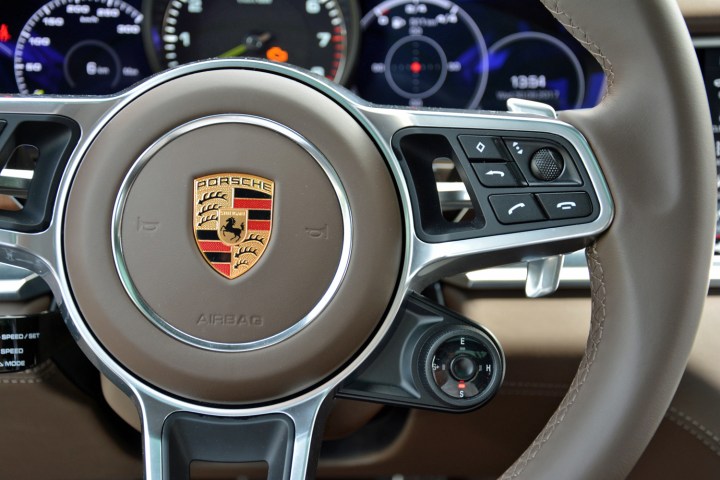
“Driving yourself will hopefully remain the most important thing at Porsche for a very long time. The Porsche sports car will be one of the last automobiles with a steering wheel,” opined Lutz Meschke, Porsche’s board member for finance and IT, in a statement.
That’s good news, at least if you have the means to buy a Porsche. The German firm nonetheless concedes it needs to bake an increasing amount of technology into its models in order to satisfy demand from buyers in key markets, and keep up with its main rivals. Meschke points out traffic jam assist systems that take complete control of the car in dense traffic will become necessary moving forward, as will systems that allow the car to park itself. The company predicts both of these features will soon be must-haves in the luxury segment.
As it stands, Porsche’s most advanced driving aid is called InnoDrive. We recently tested the system on the roads around the company’s headquarters in Stuttgart, Germany. It’s a super-cruise control system that doesn’t neuter a car’s performance genes. It can sling you into a curve just like a human driver would. It also analyzes data from onboard sensors and navigation information to remain about two miles ahead of the car at all times. It knows when there’s a hill, when there’s a bend, and where the speed limit drops.
InnoDrive is currently only available on the Panamera and the brand-new third-generation Cayenne, which are the more family-oriented models in the Porsche lineup. Meschke said that trend will continue into the future. Some models will be offered with more tech features and a greater level of autonomy while others will be appreciably more basic. But even in a car like the GT2 RS, full autonomy could come in handy to show rookie racers the fastest way around a track.
Meschke also predicted Porsche will make a huge leap with the Mission E, its first all-electric model. It’s tentatively scheduled to arrive in showrooms in 2019. When it does, an over-the-air updating system will give buyers the possibility to upgrade their car whenever they want, even if they only need a feature for a day, a week, or a month.
“Imagine that you could use a software update to download [more horsepower] over-the-air at short notice if you want to head to the racetrack on the weekend – or dynamic headlights if you are headed for a long night drive,” he said. Tech is expensive, so Porsche is spending a considerable amount of money on bringing it to the market in a timely and reliable manner. Rest assured, though; the brand isn’t following Google’s Waymo brand into the world of fully autonomous pods.



